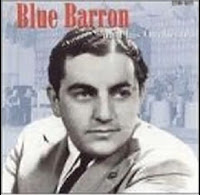A number of artists recorded "Are You Lonesome Tonight?" in 1927. Composer Lou Handman himself played piano while his sister Edith provided the vocals for a recording released on the Gennett label. Vaughn DeLeath (also known as "The Original Radio Girl") recorded the song twice, first on June 13, as solo and later on September 21, as vocalist for The Colonial Club Orchestra. Around August 1927, another version was released by famed tenor Henry Burr.
The first charting version of "Are You Lonesome Tonight?" was recorded by Blue Barron for MGM Records. The record first reached the Billboard pop chart on April 7, 1950 and lasted eight weeks there, peaking at number nineteen. Source - http://en.wikipedia.org/wiki/Are_You_Lonesome_Tonight%3F_(song)
Only a few weeks after Barron's recording, Al Jolson recorded a version of the song on April 28, 1950; it was released by Decca Records.
 The best-known recording, by Elvis Presley, recorded on April 4, 1960, and engineered by Nashville sound pioneer Bill Porter. Colonel Parker (it was one of his wife's favorite songs) persuaded Elvis to record his own rendition of this song. Elvis' version was based on the Blue Barron Orchestra in 1950 and the spoken part of the song (like Al Jolson's) was loosely based on Shakespeare's As You Like it using Jaques' speech on Act II Scene VII: "All the world's a stage, and all men and women merely players: they have their exits and their entrances; And one man in his time plays many parts." It went on to be one of the biggest-selling singles of 1960, peaking at number one on the Billboard pop chart for six weeks and peaking at number three on the R&B charts.
The best-known recording, by Elvis Presley, recorded on April 4, 1960, and engineered by Nashville sound pioneer Bill Porter. Colonel Parker (it was one of his wife's favorite songs) persuaded Elvis to record his own rendition of this song. Elvis' version was based on the Blue Barron Orchestra in 1950 and the spoken part of the song (like Al Jolson's) was loosely based on Shakespeare's As You Like it using Jaques' speech on Act II Scene VII: "All the world's a stage, and all men and women merely players: they have their exits and their entrances; And one man in his time plays many parts." It went on to be one of the biggest-selling singles of 1960, peaking at number one on the Billboard pop chart for six weeks and peaking at number three on the R&B charts.Roy Turk (September 20, 1892 in New York – November 30, 1934 in Hollywood, California) was an American songwriter. A lyricist, he frequently collaborated with composer Fred E. Ahlert – their popular 1928 song "Mean to Me" has become a jazz standard. He worked with many other composers, including for film lyrics. http://www.songwritershalloffame.org/exhibits/C44

No comments:
Post a Comment